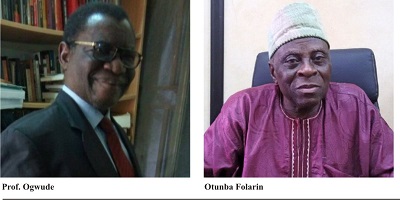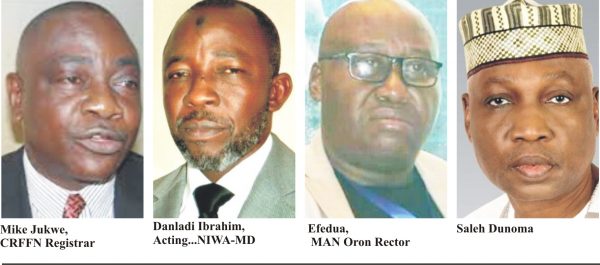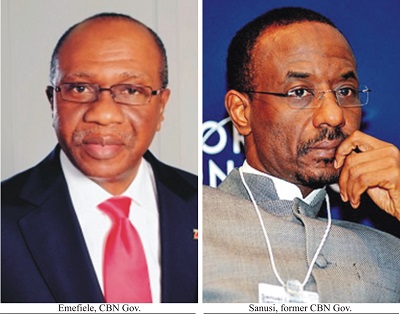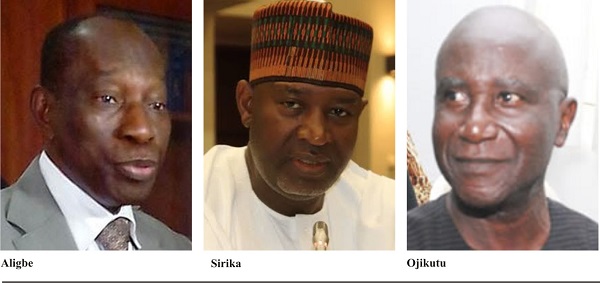What Adeniyi Must Do Differently As Customs CG- Stakeholders’ Perspective
By Babajide Okeowo
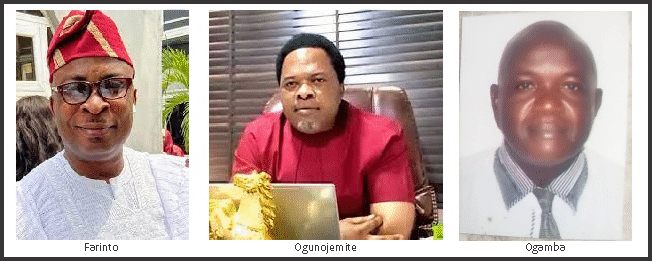
The euphoria surrounding the appointment of Adewale Adeniyi as the Comptroller General of Customs is gradually dying down and the realization of the hard task ahead of him is gradually setting in.
Prior to his announcement, the cries for the appointment of a career officer as the Comptroller General of the Nigeria Customs Service have been resounding and deafening!
And in hearkening to that cries, President Bola Ahmed Tinubu on Monday, June 19, 2023, announced the appointment of Deputy Comptroller General Adewale Adeniyi as the new CGC of Customs to wide applause.
That is as far as it goes. Stakeholders in the Maritime industry have called on the new CGC to hit the ground running as the service is bedevilled with a myriad of challenges begging for attention.
The issue of trade facilitation, duty benchmark, and modernization of Customs operations have been identified as some of the critical issues that he must look at urgently.
Nigeria, being a member of the World Trade Organization WTO concluded negotiations at the 2013 Bali Ministerial Conference on a landmark Trade Facilitation Agreement (TFA), which entered into force on 22nd February 2017 following its ratification by two-thirds of the WTO membership. The TFA contains provisions for expediting the movement, release and clearance of goods, including goods in transit.
The agreement also sets out procedures that enable cooperation between customs and other appropriate authorities on trade facilitation and customs compliance issues. Provisions for technical assistance and capacity building in this area, as also contained in the TFA.
Nigeria ratified the TFA on the 16th of January 2017, as a Category A country. Despite this ambitious effort, Nigeria has been unable to successfully implement the provisions of the TFA, even though the country can gain up to US$170 billion in 20 years from new trade flows if trade facilitation is promoted and implemented.
Reacting to Adeniyi’s appointment, Evangelist Leonard Ogamba, President of the Shippers’ Association Lagos State does not see the appointment of a career officer as the CG of Customs as the solution to the factors hindering trade facilitation in Nigeria, rather, he sees wrong policies from policymakers as the bane of trade facilitation.
He also faulted Adeniyi for saying he wants to build on the achievement of the past eight years saying the country will find itself in an even bigger mess if that happens.
“I have gone through the first speech he made public and I can assure you that if that is anything to go by, then, we are in a greater mess.
The reason being that he said that for eight years the service has embarked on the journey of Transformation focusing on the financial revenue generation, blah, blah, blah, blah, and he said that we are going to build on it.
So, I want to underline, building on it, what is he going to build on?
Build on policies that are in contravention to international agreements that Nigeria has domesticated or policies that are made out of the National Assembly. What policy is he building on?
He is educated, and enlightened and he’s a career officer, I love him. But telling us that he’s going to build on the policies of the past, for me, he’s just going back to square one.
The problem in Customs is not with who is the CG. It doesn’t matter if you have a career officer as the head of customs and every other government parastatals.
The Issue emanates from the policy makers the subject matter of discussion is still centered around the implementation of policies.
And therefore, even if you bring in the best custom officer to help Nigerian customs in as much as the policymakers are not friendly, and they are not making people-friendly policies, then there is a problem.
There’s nothing anybody can do. There’s nothing the CG can do or any other person can do because they are there to implement” he started.
Highlighting the way forward, Ogamba advised Adeniyi and the Nigeria Customs Services to operate within the confines of international conventions which have been domesticated in Nigeria.
He pointed out that the activities of Customs and other agencies of government in the ports have a direct link and impact on inflation.
“Number one, many people do not know that the prices of commodities or causes of inflation are triggered by the cost incurred from the ports.
As a shipper, you don’t expect me to sell below my landing cost and whatever money I spent in importing and clearing my goods, I will factor it in and add my own profit.
It is not a sin. Therefore, my advice to Nigeria Customs and Adeniyi is within the confines of the international convention which have been domesticated in Nigeria” he added.
Continuing, “It is in the Customs register that if any vehicle comes into the country and the vehicle has covered 3000 odometers the value of that vehicle has depreciated by 50%, in the last four years we have not seen it happen. So, what they are doing is a total contravention of what Nigeria signed for internationally.
He has to advise the government. We have seen also the contravention of Act number 20 of 2003, which clearly set out the principles on valuation, but we haven’t seen that happen in the last eight years. What the Central Bank of Nigeria has done is that they come up with what they call benchmarking metrics.
So, in layman’s language, they are using the market price of the country where you imported it from, which is absolutely nonprofessional. What the law says is that what should be used is the transaction value. What is the transaction value? The transaction value emanates from the manufacturer, it emanates from the original owner of the products, how much did you buy it from him abroad not using the internet or using ICT to gather prices and get the value, and then you factor it into your system and then you come around and say that you have the custom database what is the source of this custom database? He asked.
On his part, Otunba Frank Ogunojemite, the President of Africa Association of Professional Freight Forwarders and Logistics in Nigeria, APFFLON urged Adeniyi to look at the issue of Customs modernization project as one of the factors that will improve trade facilitation while describing his appointment as a rebirth of the Service
“The modernization of Customs is very important as this is one of the several factors that will increase trade facilitation, and until we get those things right, we will still not be able to take our place in the comity of maritime nations.
He is not going to do it solely by himself, but because of his experience, his international connection, and the area he is coming from
Modernization of custom operations is very important. For instance, the internet provider of Nigeria Customs Service, Messr Webb Fontaine, they were not directly contracted by Nigeria Customs but by the Ministry of Finance and as such, they might not be able to control these people because they do not direct engagement with them.
Most time when we have a breakdown of the services, you cannot capture your jobs and thereby increasing the cost of bringing things into the country by the ways of freight demurrage and detention.
What are the compensatory measures drafted into their contract that binds Customs and these people?
There are a lot of things that we have to look at as professionals for us to increase trade facilitation, because when there is too much impediment there is nothing we can do that the trade will be facilitated. There is nothing you can do.
For instance, if the country is not secure and the government has so many other issues, there will not be Foreign Direct Investment.
He also needs to engage with stakeholders as he himself alone cannot do it.
He needs to involve the stakeholder, the professional body, and the thought leaders as well. What can we achieve, what can we do?
As the CG of Customs, he will in his own interest wants to leave a lasting legacy in Customs, unlike someone who has been brought from a different profession to direct the affairs.
Automatically, he wants to leave a good legacy. He would want to do things much better and that’s how it’s supposed to be” he interjected.
On his part, Dr Kayode Farinto is the Acting President of the Association of Nigerian Licensed Customs (ANLCA), several issues require the attention of the CGC which he must attend to as a matter of urgency.
“The first thing he needs to do is to have a meeting with stakeholders, this is something that has been lacking. In the last eight years, there has not been stakeholders’ engagement, this must be brought back.
World Customs Organisations WCO 2013 Handbook said that every Customs formation must collaborate with Customs brokers and stakeholders.
This is not happening. Being a career officer, he must ensure that he brings in engagement; engaging the Customs’ broker, the freight forwarders, that is number one.
Secondly, he must be accessible; he must make himself accessible. We had a Comptroller General who has been evasive; you can’t see him, he’s not available when there are critical issues to take decisions on, he’s not available.
Thirdly, he must make sure that he put the issue of trade facilitation on the front burner and must discourage the situation where overzealous officers will now stop consignment that has been duly released in the port. I am talking about setting up a task force here and there, all these lead to delays. Once a consignment is released, nobody stops it except a national security report against such consignment was made.
If he’s able to achieve one or three of these points, then, I’ll tell you, everybody will fall in line and we’ll all know that there is a new sheriff in town, and the level of compliance will be increased by itself and then, the service will be able to generate revenue that it has not generated before.
And there are other issues that he also needs to put in place, the training of custom brokers is very important.
WCO said every custom formation must train customs brokers. We have never been trained in the last eight years and that is very bad.
The last training we had was during the era of Dikko Inde as Comptroller General of Customs. So, let him start with these four agenda and you’ll see us having a robust administration and there will be sanity in the industry.



